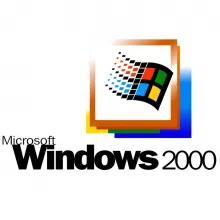
Year
2000
Windows 2000 is an operating system for use on both client and server computers. It was produced by Microsoft and released to manufacturing on December 15, 1999 and launched to retail on February 17, 2000. It is the successor to Windows NT 4.0, and is the last version of Microsoft Windows to display the "Windows NT" designation. It is succeeded by Windows XP (released in October 2001) and Windows Server 2003 (released in April 2003). During development, Windows 2000 was known as Windows NT 5.0.



